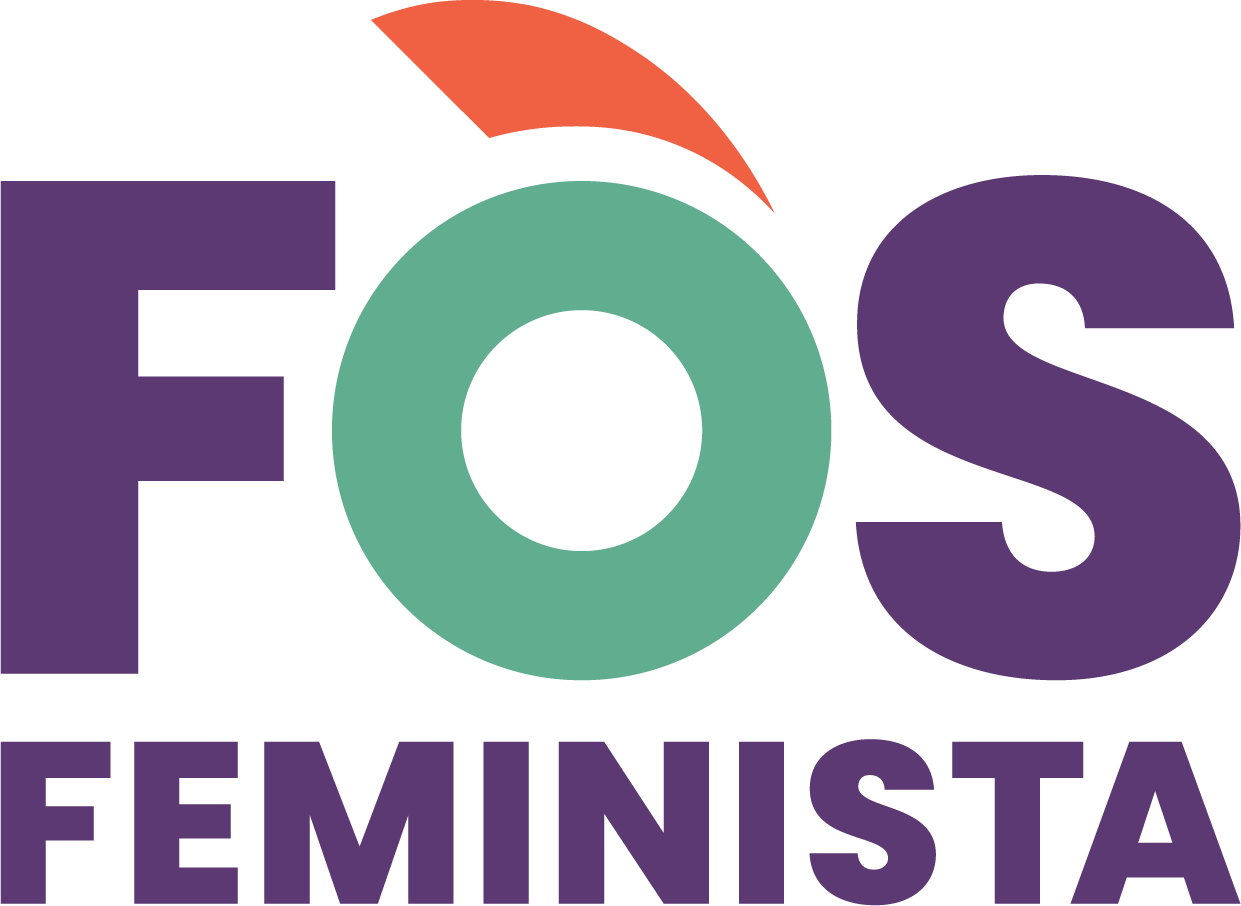
Giselle Carino - on the left - with colleagues from the green wave in Argentina
Fòs Feminista’s Chief Executive Officer, Giselle Carino, speaks about the impacts of U.S. policy on reproductive rights and justice worldwide.
Fòs Feminista’s Chief Executive Officer, Giselle Carino, delivered the following remarks during a forum organized by the Center for Reproductive Rights in January 2022.
Good morning and good afternoon to all. It is a pleasure to join this conversation today. I thank Rebecca Brown for the invitation, and also colleagues Nancy, Dr. T, and Professor Michele for this very important dialogue. As CEO of Fòs Feminista, I speak here today from shared experience with other sexual and reproductive health, rights, and justice activists from Latin America and the Caribbean, and the Global South.
We follow the news of the rollbacks and risks to constitutional protections for abortion rights in the United States not only with concern for the global impact of the loss of a historic legal precedent but also with great solidarity, especially to women and girls who are most impacted in accessing basic sexual and reproductive health needs, particularly those who are Black, young, or poor. Our solidarity comes from the concrete experience of connecting our oppressions.
The historical moment we are living in is framed by contagion, not only in pandemics: the advance of anti-rights and anti-gender agenda in the United States not only influences the advance of authoritarianism in the Global South, but feeds back into it. This global scenario of growing anti-gender politics, which is sophisticated in its use of the language of rights and the supposed protection of women, families, and children, is part of what has made it possible to get to this point in the threat to Roe v. Wade. While the Trump Administration was consolidating an anti-rights Supreme Court, Bolsonaro’s Brazil was also signing on to anti-gender foreign policy, and the offensive in Poland that reinstated a near-total ban on abortion was advancing.
It is possible to tell the story of this moment of attacks on abortion rights in the United States as a domestic dispute between Republicans and Democrats for more than half a century, and one that will impact the whole world because of the geopolitical position of the United States. But that domestic, power-based view of this country is, while true, incomplete. Feminist solidarity is more than a value for transformation from the local to the global; it is a new way of understanding that transformations and resistances are interconnected by the system of permanent contagion. If, on the one hand, we have against us what is called “gender ideology”, as an example of the fanatism of our time on a global scale, on the other hand, we have in our favor the growing feminist movements with different compositions and with the vigor of the new generations, as seen in Argentina or Chile. It is only with a strong civil society from feminism that we are prepared to respond and resist the attacks that, unlike in the past, are much more globally interconnected.
Therefore, my objective today is to defend the importance of articulation with the Global South in this moment of the struggle for abortion rights in the United States. And here it is important to note that, in such difficult times of anti-gender authoritarianism, COVID-19, and growing inequalities, in Latin America, we have achieved historic victories in the struggle for abortion rights. Therefore, I believe that feminist contagion is also possible, and it is our mission.
At Fòs Feminista, we understand that this is a time to strengthen alliances, think together, and strengthen paths of solidarity. That is why I share today some lessons learned about the struggle for abortion rights in two areas:
- We know how much the internal politics of this country impacts the Global South. We know it with the effects of the Global Gag Rule. I don’t think I need to prove to this audience how much the domestic politics of this country is also global politics.
- Unlike in the past, when the contagion of ideas went from North to South, the new order of moral connection is multidirectional. It goes from the South to the South, from the South to the North – that is to say, in multiple directions. Why does this matter? Because herein lies the feminist hope for transformation: in the permanence of feminist movements everywhere and the interconnectivity between them.
We all know what the Global Gag Rule is. Since the 1980s, whenever a Republican president takes office in the United States, the ban on U.S. international family planning and reproductive health assistance being granted to foreign organizations involved in any way with abortion is reinstated, even if they do so with non-U.S. funds and even if U.S. law allows it.
The Trump Administration’s version of the Global Gag Rule went further in its anti-gender authoritarianism because it extended restrictions on maternal and child health care, nutrition, HIV/AIDS, tuberculosis, malaria, infectious diseases, and water, sanitation, and hygiene programs, creating disruptions with long-term impacts on affected national health systems.
It has been a year since the Biden Administration repealed the latest version of the policy, but there has not yet been a permanent repeal, and its harms are structural, creating the opposite of the desired effect of “reducing abortions”. The defunding of organizations and networks providing sexual and reproductive health services, including access to contraceptives and sexual information and education leads to an increase in unwanted pregnancies and thus abortions, which in turn become more unsafe. Professor Yana Rodgers’ research using data from 2001 to 2008 showed that women in Latin America were three times more likely to have an abortion while the Global Gag Rule was in effect.
How were we able to resist the Global Gag Rule, to document and denounce its impacts and the naturalization of the use of the bodies and lives of women and girls in the Global South as imperialist battlegrounds? This is the tireless work of civil society and feminist movements.
There is no possible resistance or advance in the global defense of sexual and reproductive health, rights, and justice without the creative resilience of feminist movements, which therefore need to be continually supported and funded. That is laborious and ongoing work, with no immediate expression in terms of metrics of success, i.e., no immediate change for Northern donors. The recent experiences of progress in the legalization of abortion in Latin America and the Caribbean, considered surprising by many, are proof of this.
The Green Wave “infected” the region. In the last two years we have witnessed important advances in a political moment that would seem to be one of the most unfavorable, during the Covid-19 pandemic, but these changes did not happen overnight. They are the result of a local and continuous feminist resistance. We can think of brief examples in Argentina, Mexico, and Colombia:
- At the end of 2020, the Congress of Argentina approved the legalization of abortion up to 12 weeks of pregnancy. This victory in a Catholic country with a weakened economy came from the capacity of social movements, working in articulation for almost two decades, to generate an expansive solidarity, to speak not only with feminisms but also with health professionals, with progressive faith groups, with journalists and communicators who took the issue to other audiences and other parts of the country.
- In 2021, several Mexican states did the same as Argentina, and in September the Mexican Supreme Court declared the criminalization of abortion to be unconstitutional in the country. Responding to the recent abortion restrictions imposed in Texas, Mexican activists are already advancing solidarity strategies on the U.S.-Mexico border to guarantee U.S. women and girls access to medical abortion with feminist accompaniment. This is an example of the power of feminist interconnectivity. Latin America and the Caribbean remains the region with some of the most restrictive abortion laws in the world, but the discovery of misoprostol abortion in the region is increasing abortion safety and changing advocacy strategies.
- In 2021, Colombia’s Constitutional Court advanced a case that may lead to the elimination of the crime of abortion from the country’s penal code. This is a very sophisticated legal path – a scenario in which abortion has nothing to do with crime, police, or criminal justice, but is treated exclusively as a health issue. How did that debate progress? It was not because of the genius of great legal minds, but because of the work of Colombian feminist movements that demonstrated that, although there are far fewer legal restrictions on abortion in the country since a 2006 constitutional decision, that did not translate into more access for the people who need it most. There is another feminist learning here: legal or constitutional protections for abortion rights are part of the struggle, but they do not offer a guarantee of implementation or access; that is a long-term job that requires ongoing involvement of feminist movements.
All these advances, which perhaps a decade ago would have been unthinkable, came about thanks to years of feminist mobilization and the power of contagion, of interconnectivity between movements.
As international organizations, movements and donors with power and responsibility, we must act in solidarity, resisting attempts to establish a necessary order of transformation, as if political change occurs in linear processes or following theoretical models. The feminist force for transformation comes from the interconnectivity of movements, and it is our duty to fight to guarantee them consistency in support, funding, and opportunities for connection and “contagion”.






